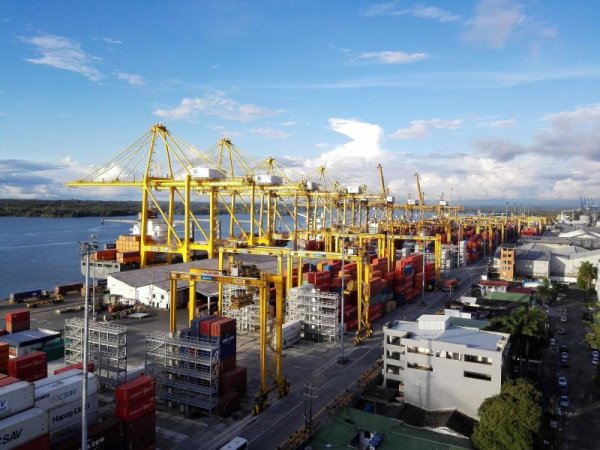Climate of opportunity for global business and communities
NDF launches first-of-its-kind study on private-sector climate resilience solutions
The Nordic Development Fund (NDF) in partnership with The Inter-American Development Bank (IDB) is launching Private Markets for Climate Resilience (PMCR), a landmark multi-year study that brings to light current best practices and business opportunities in climate change resilience.
Why the PMCR study?
“Climate change is increasing risks and impacts across our global and local economies, particularly in more vulnerable developing countries where there is less capacity to adapt,” says NDF’s Vice President for Operations, Leena Klossner. “And because public action alone will not be enough to combat this threat, the cost and the task of developing the right products and services to drive resilience will largely fall to the private sector.”
Through multi-stakeholder resilience dialogues, primary and secondary sources, and market intelligence from private and public actors, a global team of PMCR experts brought together insights and data on a vast number of practical and affordable solutions already underway in the agriculture and transport sectors of Colombia, South Africa, the Philippines, Nicaragua, Kenya and Vietnam.
These have been documented and discussed in the newly-launched PMCR Global Report along with recommendations on how and why private stakeholders should become more active in climate resilience, as well as current barriers and opportunities for demand and supply, and financing options.
What kind of solutions?
Examples of resilience solutions identified by PMCR country teams include those designed to protect against extreme weather events such as weather forecasting technologies, agro-climatic simulations, agricultural inputs, flood control, irrigation strategies, soil management, and resistant road construction materials, among many other products and services aimed at managing climate risk.
“It was reassuring to find evidence of hundreds of products and services that address climate resilience already being supplied by the private sector in the countries under study,” says Isabel Leroux, Program Manager on the NDF side. “One can only assume this is the tip of the iceberg.”
But even with a great deal of relevant action already taking place and demand for climate resilience solutions growing, it is unclear whether they can form a foundation for sustainable markets and be enough to avert significant economic loss.
Building the business case
Steven Wilson, Senior Advisor to The Climate Service (a climate analytics company www.theclimateservice.com), who designed and managed parts of the PMCR project, notes in his foreword to the Global Report that strategic thinking and business recognition of opportunities driven by climate risks are often hindered by the ‘tyranny of the short term’. This is based on the premise that private companies must typically prioritise current risk and short-term profitability over longer-term business sustainability.
On top of this, the business case for resilience has not yet been well articulated.
“While most businesses acknowledge that greater climate resilience is an important goal,” says Wilson, “the lack of a universally recognised financial metric, such as a ‘return on resilience’ measure, impedes private action in this area.”
Ultimately, business will need to demonstrate the economic returns for greater climate resilience – both for defensive investments in their own operations and for making the opportunistic business case to customers.
Barriers linked to local conditions
“In the countries and sectors under study, a general lack of awareness of the business case for resilience, combined with the relatively high cost of doing business for smaller companies, was apparent,” confirms Carmen Lacambra of Grupo Laera, who coordinated the PMCR project from the frontlines. “And it’s worth noting that the companies identified as providing resilience products and services in the study were more likely to be micro-, small- and medium-sized enterprises.
In the Report, Lacambra cites other important findings from the PMCR resilience dialogues, notably, local agricultural producers do want affordable products and services that aren’t just short-term fixes, but will help them build longer-term climate resilience. They also want climate-resilient supply chains, access to sustainable markets and of course financing.
Similarly, in the transport sector, which shares many interdependencies with the agricultural sector, not least the need to get produce safely to market, stakeholders have significant expectations for more climate-resilient infrastructure. “But all this is easier said than done,” Lacambra asserts. “Especially since most of the challenges small business owners face are not directly linked to climate change, but rather to the local operational and regulatory requirements.”
The public and private sector need each other
“The public sector needs private innovation, creative problem solving and capital,” Wilson asserts. “Going forward, any effective climate response requires the right data and strategic decisions that will at times blur the boundaries between public and private, between planning and the market.”
To succeed, markets need more than just buyers and sellers, they also need relevant public services, including reliable information to promote behavioural change, and favourable policies to enable the right market conditions. Strong policies can incentivise the private sector to invest in longer-term continuity, instead of focusing on short-sighted climate-proofing and treating resilience as an added cost burden.
An obvious case in point is in public road building. “If the roads are owned and controlled by governments but are built and serviced by the private sector, then climate resilience should be a prerequisite for Government bidding,” explains Leroux. “If not, companies won’t be incentivised to factor resilience into their cost structure and will instead see it as an unnecessary expense.”
Where to from here?
“Certainly, greater climate resilience is a necessity as we move into an uncertain future,” warns Wilson. “And while the cost and benefits of resilience building are being debated, climate risks are accelerating.”
“The PMCR study showed that companies taking proactive measures to increase their resilience or to create new products or services, even in the face of uncertainty, can maintain their viability and gain competitive advantage. Importantly, they can also create local capacity that can contribute to the public response to climate change, having a compounding effect,” Klossner concludes.
The PMCR Global Report, together with Resilience Solutions Factsheets, has been developed as a targeted resource for international development organisations and donors, private sector associations, policymakers, academic institutions, and enterprises in agriculture and the transport sectors, and private investors, among many others. The study points the way forward to a new research agenda on private innovation in climate resilient technologies, products and services in developing and emerging markets.




